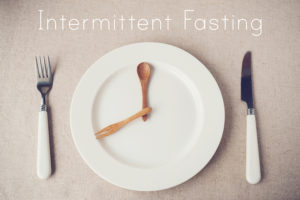 Healthy seniors are trying intermittent fasting and not just to lose weight. Fasting has long been known to boost longevity and health. Although still being researched, going 12 to 16 hours without eating, as in intermittent fasting, stimulates autophagy, the cellular cleaning process. Cleaner cells give rise to younger, healthier tissues.
Healthy seniors are trying intermittent fasting and not just to lose weight. Fasting has long been known to boost longevity and health. Although still being researched, going 12 to 16 hours without eating, as in intermittent fasting, stimulates autophagy, the cellular cleaning process. Cleaner cells give rise to younger, healthier tissues.
To understand how fasting can extend healthy lifespan, you don’t have to fully understand the biochemistry behind it. Instead look at the results of calorie restriction experiments on animals. In 1934 scientist Clive McCay discovered that rats fed less food lived substantially longer than rats fed “ad lib.”
Fasting for Longevity
Over the last 75 years, other experiments have shown that 30-50 percent calorie reduction leads to roughly 30-50 percent longer lifespan in a variety of species. There is no way to run similar studies on humans, but we share similar DNA as rats.
There is a Calorie Restriction Society whose members restrict calories but with optimal nutrition (CRON) for the purpose of better health and longevity. Although it has been around since Ray Wolford and others pioneered the practice (1992), it’s never caught on. People find it hard to sustain a diet of so few calories (1200-1500). It’s also difficult to eat everything that is essential for health within such a limited range of calories.
If you’re like most people who find dieting disagreeable, you may find it simpler and easier to restrict the hours you allow yourself to eat. For example, if you finish your dinner by 7 p.m., you fast until the next day for 12 to 16 hours.
Limit the Feeding Window
Many people find it easier to restrict the time within which they can eat. You simply don’t eat after dinner and go for the next 12 to 16 hours before eating again. Unless you are doing this for weight loss, you don’t restrict calories. And because there is less opportunity to eat, most people find they consume less.
The goal, however, is for health and longevity. Many research studies find people feel better, have better health markers in lab tests, and without trying, lose weight anyway. Intermittent fasting benefits metabolism and neuronal stress resistance independent of the amount of food intake.
With this form of fasting, It’s not necessary to restrict calories to delay aging. When we eat is as important than what we eat. Fasting causes increased resistance to heart attack and stroke by up-regulating the transcription of genes that encode for cellular antioxidant and other stress defense mechanism.
Intermittent fasting has profound beneficial effects on the brain and nervous system and has been suggested as useful to prevent and treat Alzheimer’s and Parkinson’s, two of the common diseases of aging.
Our Personal Experiences with IF
My husband Rob has been doing intermittent fasting for the past 20 years. It started because he doesn’t like to play tennis and workout after eating breakfast. For those who have bought into the idea that breakfast is the most important meal of the day, think of it as delaying breakfast until after sports. You eat your first meal of the day around noon.
Personally, I like to take my vitamins and meds when I get up, and I can’t take them on an empty stomach. I solve that by having a light fruit and yogurt smoothy of about 6 oz.
Kick the Grazing Habit
For anyone who has had a long history of eating 6-7 times a day like I do (snackers and grazers), you will find this method helpful. I know I have felt much better and have had fewer digestive problems as a result. I’m not trying to lose weight but I would like to eliminate grazing especially on refined carbs and sugar.
In a next post, I’ll explain another version of intermittent fasting, one called the “fasting-mimicking diet” or FMD. This is explained in Valter Longo’s excellent research-based book, The Longevity Diet. Stay tuned.

Recent Comments